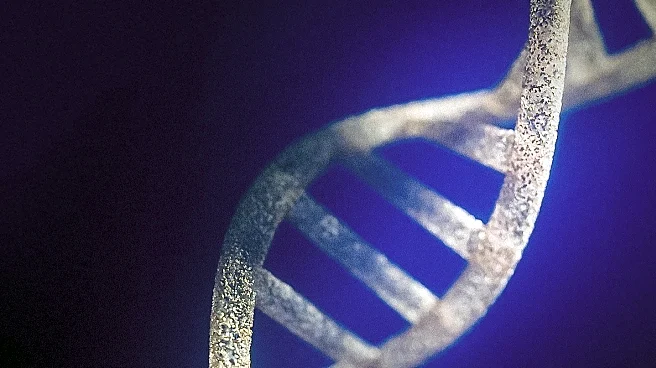What's Happening?
enGene has announced positive results from its phase 2 LEGEND trial for detalimogene voraplasmid, a non-viral gene therapy targeting non-muscle invasive bladder cancer (NMIBC). The trial demonstrated a 62%
complete response rate at six months in patients who had not responded to standard BCG therapy and had carcinoma in situ, a high-grade form of cancer confined to the bladder lining. NMIBC represents over 70% of new bladder cancer diagnoses, with around 10% of patients presenting with carcinoma in situ. The trial's preliminary data showed consistent effects, suggesting detalimogene could become a first-line therapy for NMIBC. The study has completed higher-than-anticipated patient enrollment, and enGene plans to file for FDA approval next year.
Why It's Important?
The advancement of detalimogene voraplasmid as a potential first-line therapy for NMIBC could significantly impact the treatment landscape for bladder cancer. With a high complete response rate and a favorable safety profile, this gene therapy offers hope for patients who have exhausted other treatment options. If approved, it would join other gene therapies in the market, providing more choices for patients and potentially improving outcomes. The ease of use and minimal side effects could make it a preferred option, enhancing its commercial viability and offering substantial opportunities for enGene in the competitive oncology market.
What's Next?
enGene plans to file for FDA approval of detalimogene voraplasmid next year, following the positive results from the LEGEND trial. The company anticipates substantial commercial opportunities if the therapy is approved, given its differentiated ease of use and safety profile. Stakeholders, including healthcare providers and patients, are likely to closely monitor the FDA's decision, as it could expand treatment options for NMIBC. The approval process will be critical in determining the therapy's future role in bladder cancer treatment.











